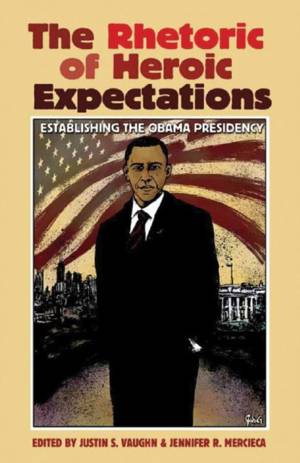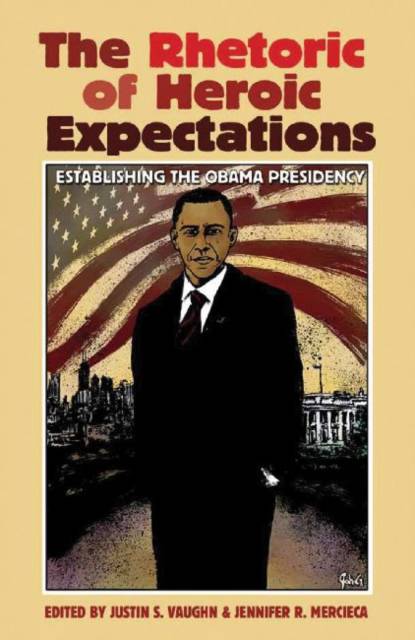
Door een staking bij bpost kan je online bestelling op dit moment iets langer onderweg zijn dan voorzien. Dringend iets nodig? Onze winkels ontvangen jou met open armen!
- Afhalen na 1 uur in een winkel met voorraad
- Gratis thuislevering in België vanaf € 30
- Ruim aanbod met 7 miljoen producten
Door een staking bij bpost kan je online bestelling op dit moment iets langer onderweg zijn dan voorzien. Dringend iets nodig? Onze winkels ontvangen jou met open armen!
- Afhalen na 1 uur in een winkel met voorraad
- Gratis thuislevering in België vanaf € 30
- Ruim aanbod met 7 miljoen producten
Zoeken
The Rhetoric of Heroic Expectations
Establishing the Obama Presidency
Justin S Vaughn, Jennifer Mercieca
€ 38,45
+ 76 punten
Omschrijving
Campaign rhetoric helps candidates to get elected, but its effects last well beyond the counting of the ballots; this was perhaps never truer than in Barack Obama's 2008 campaign. Did Obama create such high expectations that they actually hindered his ability to enact his agenda? Should we judge his performance by the scale of the expectations his rhetoric generated, or against some other standard? The Rhetoric of Heroic Expectations: Establishing the Obama Presidency grapples with these and other important questions.
Barack Obama's election seemed to many to fulfill Martin Luther King Jr.'s vision of the "long arc of the moral universe . . . bending toward justice." And after the terrorism, war, and economic downturn of the previous decade, candidate Obama's rhetoric cast broad visions of a change in the direction of American life. In these and other ways, the election of 2008 presented an especially strong example of creating expectations that would shape the public's views of the incoming administration. The public's high expectations, in turn, become a part of any president's burden upon assuming office.
The interdisciplinary scholars who have contributed to this volume focus their analysis upon three kinds of presidential burdens: institutional burdens (specific to the office of the presidency); contextual burdens (specific to the historical moment within which the president assumes office); and personal burdens (specific to the individual who becomes president).
Barack Obama's election seemed to many to fulfill Martin Luther King Jr.'s vision of the "long arc of the moral universe . . . bending toward justice." And after the terrorism, war, and economic downturn of the previous decade, candidate Obama's rhetoric cast broad visions of a change in the direction of American life. In these and other ways, the election of 2008 presented an especially strong example of creating expectations that would shape the public's views of the incoming administration. The public's high expectations, in turn, become a part of any president's burden upon assuming office.
The interdisciplinary scholars who have contributed to this volume focus their analysis upon three kinds of presidential burdens: institutional burdens (specific to the office of the presidency); contextual burdens (specific to the historical moment within which the president assumes office); and personal burdens (specific to the individual who becomes president).
Specificaties
Betrokkenen
- Auteur(s):
- Uitgeverij:
Inhoud
- Aantal bladzijden:
- 279
- Taal:
- Engels
- Reeks:
- Reeksnummer:
- nr. 24
Eigenschappen
- Productcode (EAN):
- 9781623490430
- Verschijningsdatum:
- 29/01/2014
- Uitvoering:
- Paperback
- Formaat:
- Trade paperback (VS)
- Afmetingen:
- 155 mm x 231 mm
- Gewicht:
- 476 g

Alleen bij Standaard Boekhandel
+ 76 punten op je klantenkaart van Standaard Boekhandel
Beoordelingen
We publiceren alleen reviews die voldoen aan de voorwaarden voor reviews. Bekijk onze voorwaarden voor reviews.











